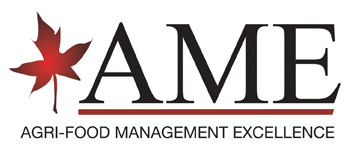
February 4th to February 16th, 2014
Brazil Travel Tips
Currency
Brazil’s unit of currency is the Real (R$), comprising coins with values of 10, 20 and 50 cents, $1 and $2, and notes with values of $5, $10, $20, $50 and $100.
There is no restriction on the amount of foreign currency that can be brought in or taken out of Brazil. However, every person who carries more than BRL$10,000 in cash in or out of Brazil must be declared.
Foreign currency can easily be exchanged at banks, some hotels and Bureau de Change kiosks, which are found at international airports and most city centers.
Major credit cards are accepted at most restaurants, clubs, bars, and stores in Rio. Visa and MasterCard are most commonly accepted and the American Express card less so.
It's a good idea to make a photocopy of the front and back of your cards and to keep these copies in the locked safe in your apartment or hotel room.
Use ATMs that are located inside the bank lobbies. Never use one on the street or late in the evening
Exchange Rates
Banks should be able to tell you what the current exchange rate is with the Brazilian Real.
Canadian Dollar / R$ approximate rate = 2.029037
Banking
Banks are open from 10:00am -4:00pm Monday to Friday. expect on Holidays
Use ATMs that are located inside the bank lobbies. Never use one on the street or late in the evening
International credit cards and ATM cards will work as long as they have a four-digit PIN encoded. Check with your bank before leaving home.
Tipping and Service Charges
Tipping in Brazil is typically not expected nor given. Usually, Brazilians only consider giving an extra if there was some special, nonstandard service.
At almost all restaurants and bars, a standard "Serviço" service fee of 10% is included as a line item at the end of the "conta" or bill.
Vaccinations
no vaccinations are needed but it is recommended you get a hepatitis A vaccination is recommended for travelers that plan to drink non-bottled water.
Make sure all childhood shots are up to date.
Passports
A valid Canadian Passport is required for all Canadians, including children, intending to visit Brazil. It is recommended that your passport be valid for at least six months beyond the date of your expected departure from Brazil.
Arrival Cards
Travellers are provided with an entry/exit card by immigration officials upon entry into Brazil. This card must be presented to officials upon departure from the country. Failure to produce this document upon departure may result in a fine.
Duty Free Goods
Visitors to Brazil may purchase duty-free goods, which are not subject to local taxes, from airport duty free shops on arrival and departure.
Apart from your own personal effects, and as long as you are over 18 years of age, you are allowed the following duty free concessions:
- 200 cigarettes or 250 grams of tobacco or 50 cigars, or a mixture of all three weighing no more than 250 grams
- 4.5 liters of wine or beer (6 x 750ml bottles) and one 1125ml bottles of spirits, liqueur or other beverages
- Goods up to a total of R$700 are free of duty and tax, but goods in excess of this may attract both duty and tax
Health and Safety
Are there any poisonous animals in Brazil?
They do have a few poisonous snakes and spiders in the region and they are to be avoided if you come into contact with one.
Is it safe to drink the water in Brazil?
Tap water is generally safe, but bottled water is recommended outside main cities and towns as gastric diseases are common
Safety Precautions:
Petty crime, including pick-pocketing, bag snatching and bag slitting does happen, keep your belonging close. Keep purses in front of you and wallets in front pocket.
Make two photocopies of valuable documents such as your passport, tickets, visas and travelers’ cheques. Keep one copy with you in a separate place to the original and leave another copy with someone at home.
While travelling, don't carry too much cash and remember that expensive watches, jewelry and cameras may be tempting targets for thieves.
Cross the streets with care--the cars have the right of way, even when the walk signal is green for you.
Electricity
Electricity in Brazil is 110 Volts, alternating at 60 cycles per second. If you travel to Brazil with a device that does not accept 110 Volts at 60 Hertz, you will need a voltage converter.
Public Call Phones
- TIME ZONE: Brazil is 3 hours ahead of Alberta. Example: If it is noon in Brazil then it will be 9:00am in Alberta.
All public phones in Brazil require you to purchase a phone card beforehand. None are coin operated.
Mobile Phones
- Check with your phone company before leaving home about international mobile roam facilities available in Brazil.
Laptops
Prepare for differences in electricity. You will need an adapter plug to accommodate plug type "C" in Brazil. You may also need a transformer. Check the transformer block on your laptop to see what voltage capacity it handles. If it cannot handle 110 to 220V, then you will also need to obtain a transformer.
Telephone
- The country code is 55
- Calling from Canada to Brazil 011 55 then local area code 3 or 4 etc. and then the local number in Argentina. Calling from Brazil to Canada is 00 1 403 or 780 and the local number.
The emergency telephone numbers is 190 to request police 193 for the Firehouse and for an Ambulance.
Brazil Climate/Seasons
Brazil climate is characterized by five climatic regions of Brazil: equatorial, tropical, semi-arid, highland tropical and subtropical. Brazil climate varies considerably from mostly tropical North (the equator intersects the Amazon) to temperate zones lying below the Tropic of Capricorn, The seasons of brazil climate are almost the reverse of the seasons in Europe and Canada.
